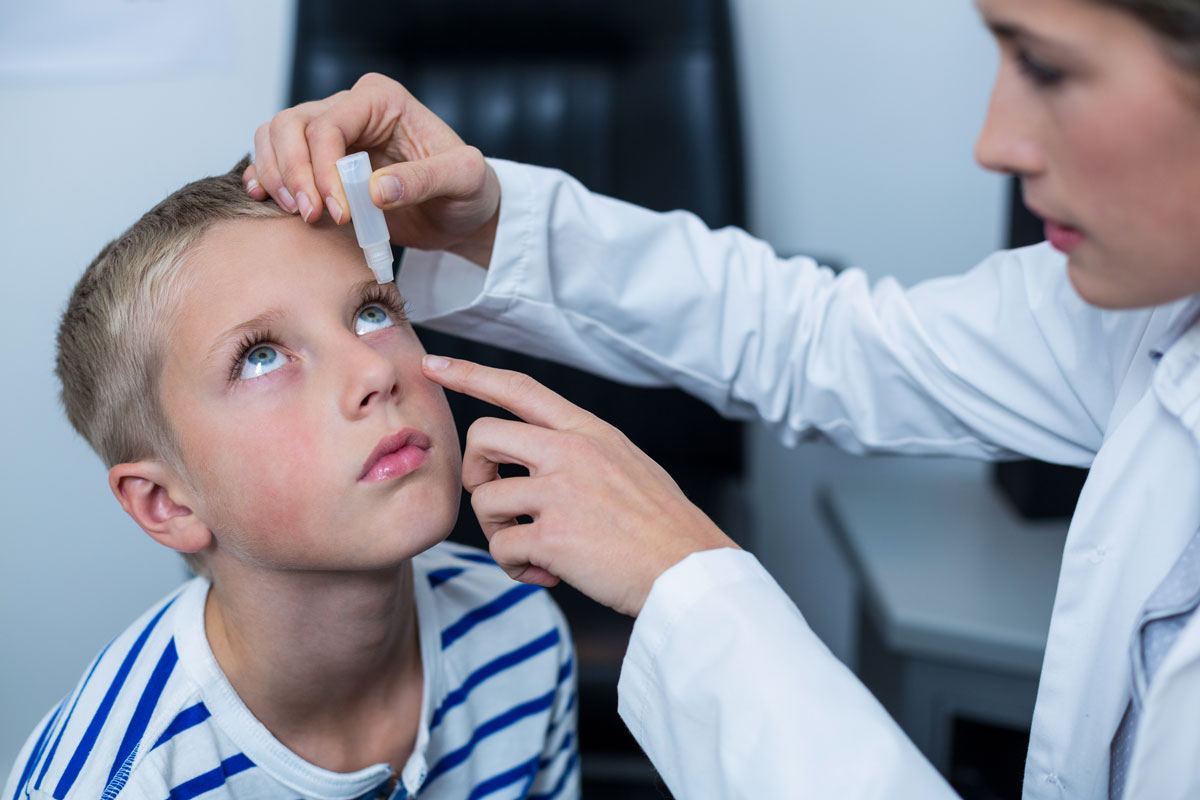 |
| A longer AL at baseline in childhood and greater axial elongation during treatment over the clinical trial period were associated with a higher incidence of early myopic macular degeneration in the adult participants. Photo: Getty Images. |
As clinical trial results of topical atropine eye drops for myopia control in childhood have shown inconsistent outcomes across different short-term trials, establishing its long-term safety and effects remains crucial. Researchers based out of the Singapore Eye Research Institute carried out the Atropine Treatment Long-term Assessment Study (ATLAS) to assess the 20-year follow-up outcomes and safety for the patients who participated in the ATOM1 study and the 10-year follow-up outcomes for the patients who took part in the ATOM2 study. Their results, published yesterday in JAMA Ophthalmology, affirmed the importance of randomized short-term treatment trials complemented with long-term follow-up of participants whenever the medical condition being studied may continue to progress after stopping the intervention. However, regarding the myopia control treatment, progression may be expected to continue for up to two decades after completing the randomized portion as well as the initial posttreatment observation portion of those trials.1
This prospective, double-masked observational study of the ATOM1 and ATOM2 randomized clinical trials took place at two single centers and included adults reviewed in 2021 through 2022 from the ATOM1 study (atropine 1% vs placebo; 1999 through 2003) and the ATOM2 study (atropine 0.01% vs 0.1% vs 0.5%; 2006 through 2012).
In these cohorts, use of short-term topical atropine eye drops ranging from 0.01% to 1.0% for a duration of two to four years starting at approximately nine years of age with moderate myopia was not associated with differences in final refractive errors 10 to 20 years after treatment. There was no increased incidence of treatment or myopia-related ocular complications in the 1% atropine-treated group vs the placebo group.
“This study may support existing literature that atropine may be ineffective at reducing myopia progression, with this study specifically examining progress into adulthood through observation of outcomes over a 10- to 20-year period,” the study authors wrote in their paper. “These observations raise several research questions that warrant further study—the duration of atropine treatment required to provide a sustained outcome, when treatment can be stopped, and whether tapering dosage or continuing treatment into the mid-teenage years.”1
A commentary by Michael Repka, MD, , also published in JAMA Ophthalmology, pointed out that the ATLAS results did provide some assurance of safety as there were no differences in the rate of adverse events in all but one of their analyses. It also emphasized that the long-term outcome data of atropine eye drops for myopia control needs to be interpreted with caution and largely should serve as a guide for future research planning.2
Still, the author did note that long-term effectiveness of atropine for myopia control was called into question. “Candidly, the findings were disappointing,” Dr. Repka wrote.
“After very-long-term follow-up of ATOM (about 20 years) and ATOM2 (about 10 years), 1.0% atropine eye drops for myopia control were not better than placebo or untreated eyes in ATOM1 and between concentrations in ATOM2 (0.01%, 0.1% and 0.5%) in terms of long-term refractive error outcomes,” he continued. “Myopic progression after the randomized clinical trial in ATOM2 was greater after stopping an atropine concentration of 0.5% than with lower concentrations (0.01% and 0.1%), thereby eliminating the initial benefit seen with the stronger dosage as was seen in earlier follow-up. Greater posttreatment progression was associated with younger age at treatment identifying this as the group to target in future studies.”
“The ATLAS results remind us that there is uncertainty regarding the long-term value and safety of atropine eye drops for myopia control,” the commentary concluded. “These findings highlight the need for randomized clinical studies to define effective and safe myopia control strategies early in myopia development but also include methods to obtain the critical long-term studies of refractive error outcomes.”2
1. Li Y, Yip M, Ning Y, et al. Topical atropine for childhood myopia control: the atropine treatment long-term assessment study. JAMA Ophthalmol. November 30, 2023. [Epub ahead of print]. 2. Repka MX. Atropine eye drops for myopia control in childhood—more long-term data, please. JAMA Ophthalmol. November 30, 2023. [Epub ahead of print]. |

